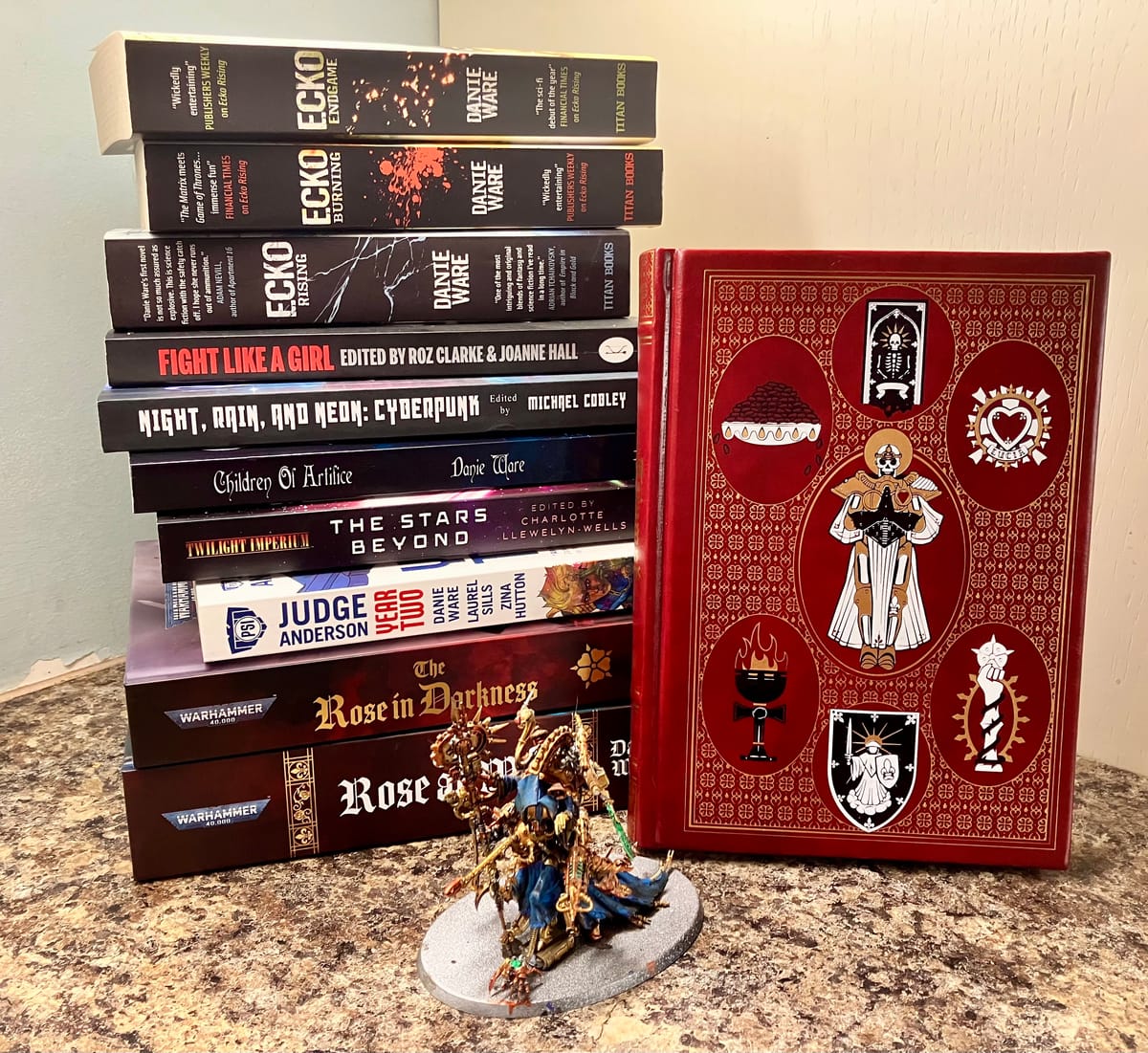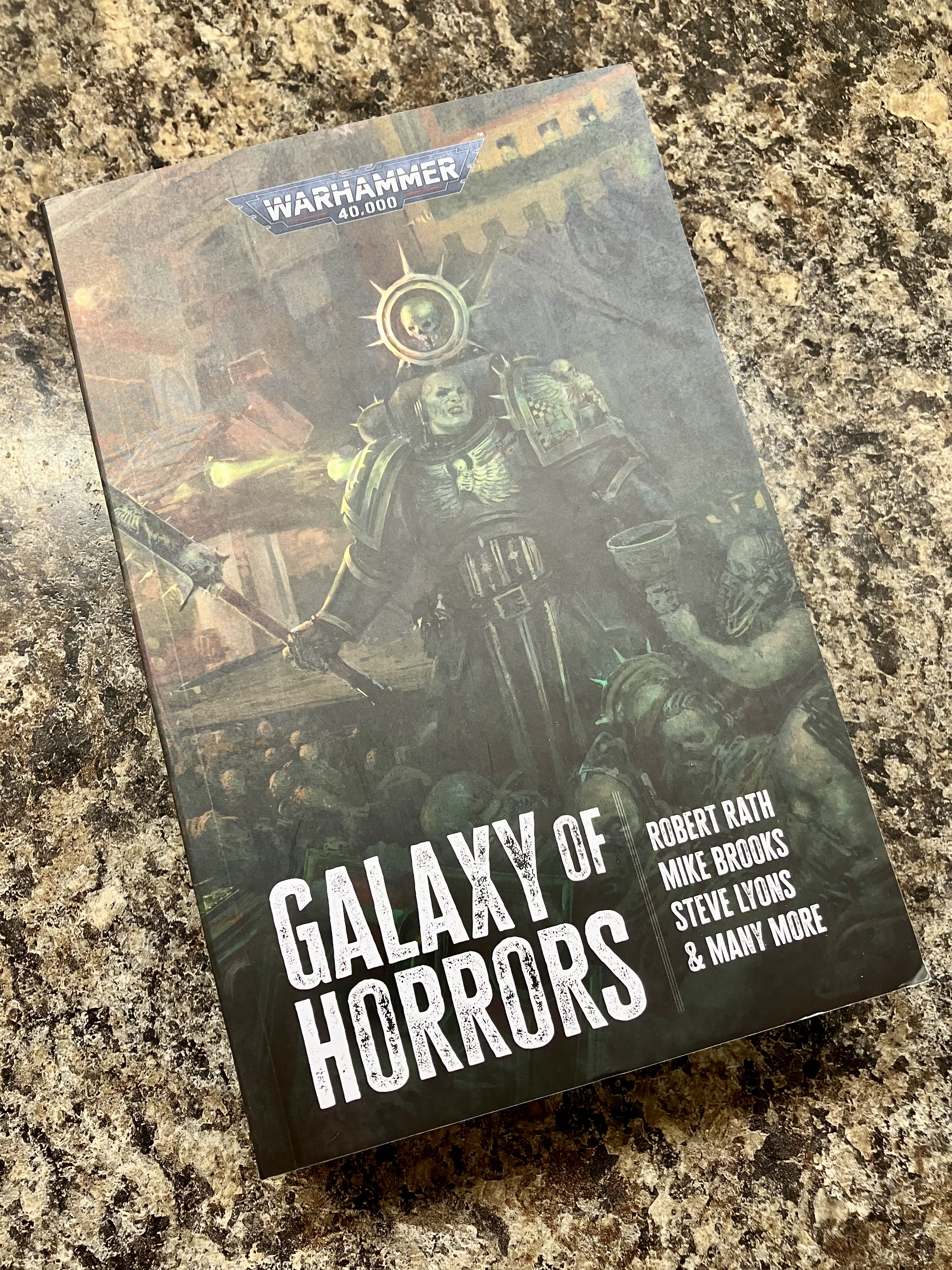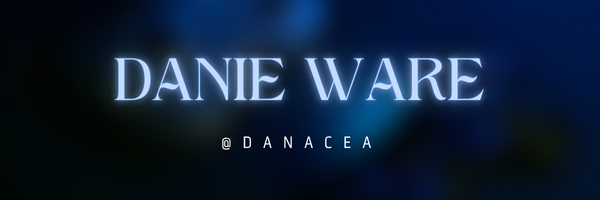On Writing Licensed Fiction
Or: What's the difference when it's someone else's?

In more than fifteen years of putting fingers to professional keyboard, I’ve written traditionally published SFF (the ECKO series) and for several licenses, including Warhammer/The Black Library, 2000AD/Judge Anderson, and the Twilight Imperium boardgame. I’ve written for big presses and small ones (and am starting to look at self-pubbing) and no two journeys – or publishers – are ever quite the same.
Traditonal SFF
ECKO is an original fantasy (s)mash-up trilogy, meaning that its entire reality, world-building, characters, narrative arcs, and the bollocks of Uncle Tom, was crafted from scratch. It wasn’t all done by me – a great deal of it was done by my friends through the ‘90s – but all of it’s our own, and completely imaginative. If you write traditionally published SFF fiction, this is the wonderful arena of freedom that you can explore, and it’s both epic and daunting. No-one can tell you what do. It’s glorious and it’s one fuck of a lot of work.
Licensed Fiction
Writing for a license, then, is the opposite. You won’t have the same freedom, but you also won’t have to build the entire world from the ground up; a lot of the heavy lifting is already done for you. That, and your publisher will have a lot more involvement in your characters, plotting, and narrative structure, meaning collaborative input and you not having to craft absolutely everything yourself. It will mean a great deal of reading and research, and learning a lot of lore often very quickly. Which can be intense, but is a lot of fun.
Is One Better?
There are advantages to both camps, and I’m not here to say that either is better or worse. They do feel quite different, though, and (sadly) there can be a certain amount of ‘not real books, not real authors’ snobbery towards the writers of licensed fiction. I don’t need to comment on how I feel about that – a 90k novel is a 90k novel, and those words still come from your head.
Collaboration is Key
In both cases, however, collaboration is key. ECKO was based upon the D&D and CyberPunk of our formative years, the quasi-experimental gaming where we strayed from module and plotted adventure, and headed out into our own wilds. Like all good ttrpgs, it was powerful, and passionate, and crazy, and it frequently went astray. And from that shared, creative madness did the best ideas come.
And the same can be true of a license. You won’t get the same bonkers (well, possibly), but you will have the support of the people who know the mythology, helping you invent all the things, guiding you through stuff you may not understand, and offering you the firecracker ideas that really make your book sparkle. Plus, they’ll be there throughout your journey. If you get stuck, or your narrative wanders off, or you suddenly get hit by genius, they’re the people who will advise you, and inspire you, and make sure you stay on track.
Plotting and Pantsing
Licensed fiction (for my me anyway) is plotted a lot more strongly and a lot earlier. I’ve been a lifelong pantser, but the more licensed fiction I write, the more I tend to plot. Not only because I have to, but because (as I’m discovering very late) it’s actually really helpful, ensuring that I surge ever-forwards, not second-guessing or undermining myself or suddenly zigging when I wanted to zag.
The Best Bit
Like so many things, it’s a learning experience, and no two books feel the same. What remains constant though, is the feeling that you’re not alone. We’re solitary workers, all of us, but not only can we share our story with our editors and license-holders, but we can also share it with our little family of other authors.
And, most important of all, with the fans who already the mythology. They’re already there for you, and there’s no feeling quite like it.

Reading: Finally starting Pete McLean’s Priest of Crowns, the last book in his ‘Peaky Blinders with Swords’ quartet. Have really enjoyed all of these, bad behaviour, bad language and all.
Watching: re-watched the D&D movie, a treat after a really horrible day at work. I’ve talked about my lifelong love of the Forgotten Realms before, and enjoyed the movie just as much the second time around. Jesting aside, are pet mimics a thing?
Playing: On the subject of the Forgotten Realms, our Four From Cormyr campaign finally came to an end last week – a campaign that we began in the before times. Our characters, them wot started with saucepans for helmets and dustbin lids for shields, are now pushing twelfth level and land- and title-holders. Guess the next game will be called ‘Adulting’.
Poor bastards.
